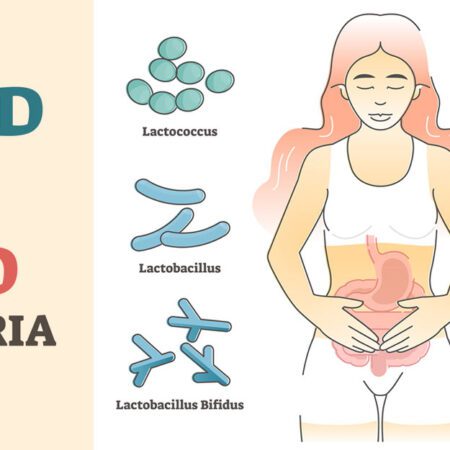4 Tips for A Thriving Immune System

Your immune system is your body’s first line of defense against sickness, infection, and disease.
Billions of cells make up this important system. These cells travel in your bloodstream, scanning your body for foreign substances and responding to any they perceive as a threat.
A healthy immune system gives you a better chance of fighting off any bacteria, viruses, or cancerous cells.
You can help your immune system function at its best by taking some proactive steps to develop healthy living habits.
Here are four tips to help you cultivate a thriving immune system from your natural medicine experts at Nature’s Link Wellness Center in Breaux Bridge, LA:
1. Fiber
Your gut is filled with tens of trillions of microorganisms, known as the gut microbiota. Your immune system and your gut microbiota regulate and cooperate with each other. When one is healthy, the other stands a better chance of being healthy too.
One way to ensure a healthy gut microbiota is to eat a fiber-rich diet. In his New York Times best-selling book, The Blue Zones: Lessons for Living Longer From the People Who’ve Lived the Longest, Dan Buettner reveals the areas in the world with the largest population of people 100 or older.
One of the things they all have in common is beans. In fact, beans, pulses, and legumes are a regular part of the daily diet in each of these five areas. These foods are filled with fiber which helps reduce inflammation, rid the body of toxins, and promote the healing properties of immune cells. (Beans are also packed with protein. Here’s more on their amazing health benefits.)
Fiber is also found in vegetables, so it’s important to get a daily dose of a rainbow of vegetables to feed the gut microbiota. Consult the Academy of Nutrition and Dietetics for details on how much fiber you need based on your gender and age.
If you need some high-fiber recipe inspiration, try these five-minute cooking lessons from The Happy Pear. Their recipes are easy to follow and the videos are a joy to watch.
2. Exercise
Getting regular exercise is another important way to help your immune system thrive.
Increasing your circulation encourages your immune system to move toxins out of the body. This helps lessen your chances of getting a cold, flu, or other illness.
Regular, moderate exercise also helps reduce inflammation, assisting your body in fighting infections and viruses.
Not a fan of the gym? Lucky for you, studies show that any movement throughout the day – even household chores such as vacuuming – count toward your daily exercise needs. So, you don’t have to become a marathon runner to boost your immune system, even sweeping the front steps or a brisk daily walk will help.
Exercise also lowers stress levels, improves mood, and enhances general well-being – more on why this is important below.
3. Stress
Your brain and your immune system are in regular communication.
During high stress situations, the brain tells your endocrine system to release hormones to help you get ready for the emergency it thinks is coming. This flood of hormones depresses your immune function, lessening its ability to protect you from colds, viruses, and disease.
With chronic stress, your body is in a constant hormonal battle which can contribute to serious health issues such as hypertension, diabetes, and heart disease.
The way you respond to stress plays an important role in the development of serious health issues. So, it’s important to develop strategies to help you manage any long-term stress.
Meditation and mindfulness techniques can help you successfully navigate difficult situations and emotions, enabling you to cope more effectively for a healthy immune system.
4. Sleep
When you sleep, your immune system produces and releases proteins called cytokines. These proteins help you fight infections and inflammation. If you aren’t getting enough sleep, your body produces less of this protective protein as well as less infection-fighting antibodies and cells.
For adults, seven to eight hours of sleep a night is sufficient. If you aren’t managing this many hours, the National Sleep Foundation recommends taking naps to help fill the gaps. Try two 30-minute naps, one before lunchtime and one after to add to your sleep bank account.
When you’re well rested, your immune system works more effectively, helping you to bounce back faster after an illness.
Bonus tip: Advice from the experts
It’s easy to develop a healthy lifestyle with Nature’s Link Wellness Center in Breaux Bridge, LA. Our motto is simple: ‘We don’t catch disease; we create them by breaking down our natural defenses according to the way we eat, drink, think, and live’.
For all the latest in natural medicine in Breaux Bridge, Lafayette and the entire Acadiana area, give us a call on 337-332-2705 or reach us online for more information.




